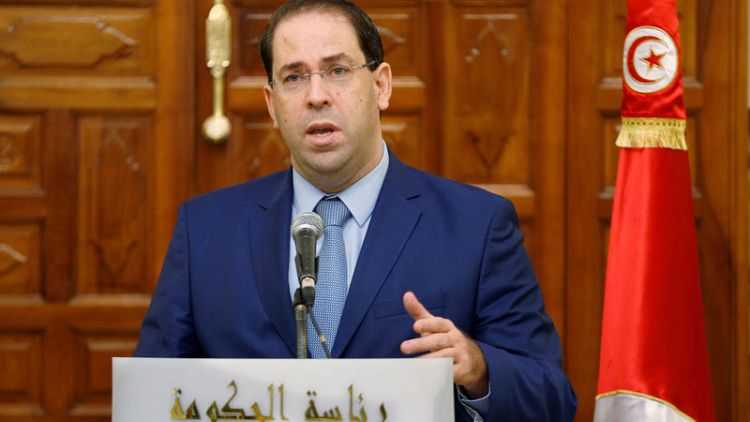By Tarek Amara
TUNIS (Reuters) - Secular government leaders announced a new party called Long Live Tunisia on Sunday which is to be led by the prime minister and will compete with moderate Islamists in upcoming elections.
Though the premier, Youssef Chahed, was not there, thousands of supporters gathered in the coastal city of Monastir to celebrate the birth of Tahya Tounes, the party's Arabic name.
The new movement was formed after months of wrangling within ruling coalition party Nidaa Tounes (Tunisia's Call), resulting in the resignation of dozens of leaders.
The fragile coalition, which also includes the moderate Islamist party Ennahda (Renaissance), is struggling to pass economic reforms demanded by foreign lenders.
"Our goal will be to have a strong party that will lead economic reforms and return hope for frustrated Tunisians," Zohra Idriss, a lawmaker and member of the new party, told Reuters by telephone from Monastir.
"We seek to lead the nation and compete with the Islamists ... Chahed will be the leader."
Elections are due by the end of this year, with Renaissance, Tunisia's largest party, favourite to win, according to polls.
The opposition said the prime minister, a 43-year-old technocrat in office since 2016, had neglected Tunisia's problems to concentrate on his political future.
"For months, Chahed has focused on establishing this party and not saving the national country economy," said Zouhair Magzaoui, head of Harakat Achaab (People's Party).
The North African country has been hailed as the Arab Spring's only democratic success because protests toppled autocrat Zine El Abidine Ben Ali in 2011 without triggering the kind of violent upheavals seen in Syria and Libya.
But nine cabinets since then have failed to resolve Tunisia's economic problems, including high inflation and unemployment. Impatience is rising among lenders such as the International Monetary Fund, who have kept the country afloat.
(Reporting By Tarek Amara; Editing by Andrew Cawthorne)
